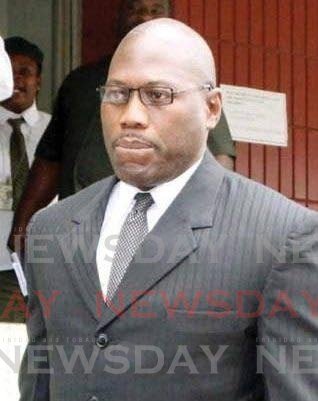DPP: Gang cases not in jeopardy

Criminal charges against 88 known gang leaders, members would not collapse even though the Opposition refused to support another extension of the Anti-Gang Act.
This is the view of Director of Public Prosecutions Roger Gaspard SC on Saturday as he responded to claims which suggested that pending cases were now in jeopardy.
Gaspard who has advised police during their investigations and on what charges can be brought against offenders said the expiration of the legislation "cannot be tantamount of our losing our silver bullet to end gang crimes."
He said it was an important tool in the police investigative tool box but noted investigators "ought to have moved less sluggishly in coming out of the investigative blocks when this Act came into force" in 2018.
During the debate in Parliament on Friday, the Opposition tried to leverage its support of the legislation by demanding the passage of the full Procurement Act and claimed that it had not made any significant impact in reducing the number of murders, the majority of which are gang-related.
Both the Attorney General Faris Al-Rawi and the Minister of National Security Stuart Young said the legislation was necessary to curb gang crimes and said it had the deterrent effect in reducing the number of gang members. Young said a number of current investigations against gang leaders and members could collapse.
The legislation which needed the Opposition's support to remain in effect after November 25, was first implemented in 2011 under the People's Partnership, and again under the PNM in 2018, but each time had a sunset clause.
It revolutionises aspects of the criminal law, putting the onus on offenders removing the right to silence if someone is suspected of hiding a gang offender or gang activity – a crime punishable with a 15-year jail term.
The law which creates offences of being a gang leader or gang member also gave the police increased powers to detain suspected offenders, without a warrant, for 72 hours without charge in the first instance and up to 14 days once approved by a High Court judge.
"To that extent keeping people in custody, especially gang leaders and so on before they could intimidate or obstruct an investigation that is something that is very, very important or the police might find very, very useful," Gaspard said.
He said building cases against suspected gang offenders "is more challenging in relation to the climate in which we live to get evidence from witnesses against a gang leader or a gang member usually requires to get evidence from people living in the communities where the gangs operate and "accordingly the persons are in greater peril in cooperating with the police and in assisting the police to bring such cases."
As a result, many of the cases are built on evidence obtained through the police cybercrime unit and other technology as opposed to human witnesses, he said.
"It is more challenging (to build cases) because of the nature of the people you are going up against. It is not more challenging because the law is more complexed. It more challenging because the risks are greater and people are less inclined to cooperate with the police."
He said the matters before the court would not be affected because the offences would have already been committed while the legislation was in force and the offences would have been a breach of the law at the time.
He noted though that police can continue to investigate gang offenders for murder, kidnapping and a host of other serious crimes under the existing legislation.


Comments
"DPP: Gang cases not in jeopardy"